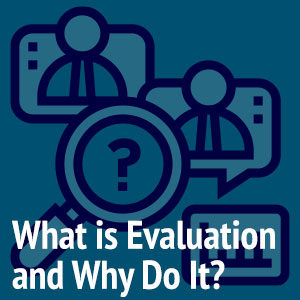 In a recent review of two books, Education and the Commercial Mindset and School Choice: The End of Public Education, which appears in the December 8, 2016 New York Review of Books, Diane Ravitch, the former Assistant Secretary of Education during the George HW Bush presidency, discusses the implications of corporate designs on public education. Ravitch begins her review by reminding us that, “Privatization means that a public service is taken over by for-profit business whose highest goal is profit.” In the name of market-driven efficiency, she argues, the “education industry” is likely to become increasingly similar to privatized hospitals and prisons. In these industries, as in many others, corporate owners, in their loyalty to investors’ desire for profits, tend to eliminate unions, reduce employee benefits, continually cut costs of operation, and orient to serving those who are least expensive to serve.
In a recent review of two books, Education and the Commercial Mindset and School Choice: The End of Public Education, which appears in the December 8, 2016 New York Review of Books, Diane Ravitch, the former Assistant Secretary of Education during the George HW Bush presidency, discusses the implications of corporate designs on public education. Ravitch begins her review by reminding us that, “Privatization means that a public service is taken over by for-profit business whose highest goal is profit.” In the name of market-driven efficiency, she argues, the “education industry” is likely to become increasingly similar to privatized hospitals and prisons. In these industries, as in many others, corporate owners, in their loyalty to investors’ desire for profits, tend to eliminate unions, reduce employee benefits, continually cut costs of operation, and orient to serving those who are least expensive to serve.
Ravitch sketches some of the challenges posed by charter schools, noting that “…they can admit the students they want, exclude those they do not want, and push out the ones who do not meet their academic or behavioral standards.” She says, that charters not only “drain away resources from public schools” but they also “leave the neediest, most expensive students to the public schools to educate.” Moreover, as Josh Moon recently noted in his article, “’School choice’ is an awful choice,” “If the “failing school” is indeed so terrible that we’re willing to reroute tax money from it to a private institution that’s not even accredited, then what makes it OK for some students to attend that failing school?”
While some argue that charter schools can “save children from failing public schools” research on student outcomes for charter school has shown mixed results. For example, The Education Law Center, in “Charter School Achievement: Hype vs Evidence” reports:
Research on charter schools paints a mixed picture. A number of recent national studies have reached the same conclusion: charter schools do not, on average, show greater levels of student achievement, typically measured by standardized test scores, than public schools, and may even perform worse.
The Center for Research on Education Outcomes (CREDO) at Stanford University found in a 2009 report that 17% of charter schools outperformed their public school equivalents, while 37% of charter schools performed worse than regular local schools, and the rest were about the same. A 2010 study by Mathematica Policy Research found that, on average, charter middle schools that held lotteries were neither more nor less successful than regular middle schools in improving student achievement, behavior, or school progress. Among the charter schools considered in the study, more had statistically significant negative effects on student achievement than statistically significant positive effects. These findings are echoed in a number of other studies.
In Michigan, Secretary of Education, Betsy Devos’s home state, 80 percent of charter schools operate as for-profit organizations. Ravitch says, “They perform no better than public schools, and according to the Detroit Free Press, they make up a publicly subsidized $1 billion per year industry with no accountability.”
Ravitch tells us that the privatization movement is largely composed of social conservatives, corporations, and business-friendly foundations. “These days, those who call themselves “education reformers” are likely to be hedge fund managers, entrepreneurs, and billionaires, not educators. The “reform” movement loudly proclaims the failure of American public education and seeks to turn public dollars over to entrepreneurs, corporate chains, mom-and-pop operations, religious organizations, and almost anyone else who wants to open a school.”
The Trump administration is likely to further advance a public-school privatization and school voucher agenda. The extent and results of such “reforms” are hard to predict. That said, as Ravitch argues “… there is no evidence for the superiority of privatization in education. Privatization divides communities and diminishes commitment to that which we call the common good. When there is a public school system, citizens are obligated to pay taxes to support the education of all children in the community, even if they have no children in the schools themselves. We invest in public education because it is an investment in the future of society.” How continued privatization of public k-12 education will affect an increasingly economically privatized and socially and politically divided society is not yet known. To find out more about the work we do with schools click here.
Resources
Diane Ravitch, “Trump’s Nominee for Secretary of Education Could Gut Public Ed,: In These Times.
Margaret E. Raymond, “A Critical Look at the Charter School Debate”
National Charter School Study (Stanford University) 2013
“Charter School Achievement: Hype vs Evidence”
Kristina Rizga Jan. 17, 2017 “Betsy DeVos Wants to Use America’s Schools to Build “God’s Kingdom”
Josh Moon, “‘School choice’ is an awful choice” Alabama Political Reporter
Literature Review: Research Comparing Charter Schools and Traditional Public Schools



